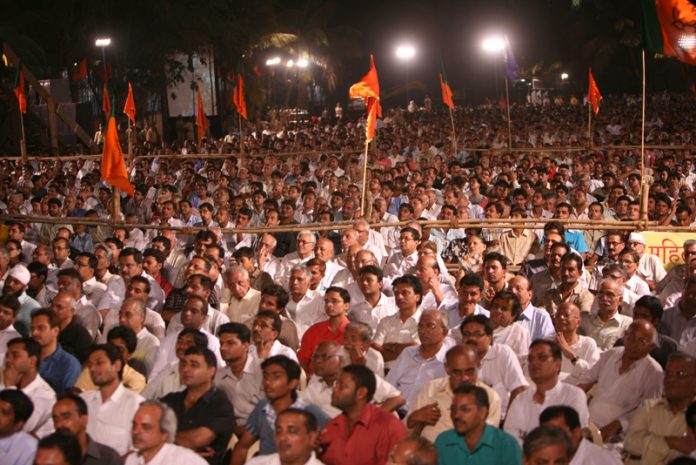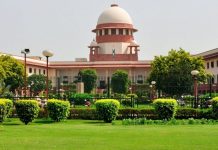This article has been written by Nidhi Yadav and Vikash Yadav.
Table of Contents
Introduction
The literal explanation of Hate speech as per Oxford may be defined as expression which is likely to cause offence or distress to other individuals on the basis of their association with a particular group and/or incitement.
The Freedom of speech and expression is an internationally recognised right. Freedom of speech and expression is an absolute right Hence various debates have proved it a very controversial topic as to what should be the extent of the freedom of speech and expression. Hence, a certain limit is drawn by the constitutional experts of various constitutional benches over a period of time to mark a line of distinction beyond which such freedom is prohibited by law and needs to be assessed critically. This article talks about the constitutional foundation of hate speech in India extending the discussion of the expression towards its consequences and procedure to deal with such matters in IPC and CrPC respectively.
Internet access/ surfing and social media have connected the entire world so beautifully but on the other side, it has been misused by various communities, organizations, political groups etc. Along with bringing an unexpected Not only Globalisation, but Internet has also markedly helped in proliferating Hate Speech across the world via social media and internet access all in every corner of the world which has now come across as one of the major side effects of the internet and social media usage. The prevalence of hate speech on Facebook in the July-September period in the year 2020 was 0.10 per cent to 0.11 per cent, meaning that out of every 10,000 views of content,10 to 11 of them included hate speech.
Indian Constitution and hate speech
Various judgements have very liberally interpreted the fundamental right of freedom of speech and expression. But at the same time, a reasonable restriction has been imposed on this fundamental right, misuse of which might fall under the ambit of hate speech. Freedom of speech and expression is an internationally recognized human right where various principles have been made to uphold its validity through the framework provided by International human rights law which recognizes both the right to freedom of speech and expression and the duty of the states’ to prohibit speech which advocates hatred. For example, the Universal Declaration of Human Rights was accepted by the United Nations General Assembly in 1948.
Freedom of Speech and Expression is protected as a fundamental right in the Lengthiest Constitution i.e. Constitution of India under Article 19(1)(a) which states as all citizens shall have the right to freedom of speech and expression.
However, under Art 19(2), a reasonable restriction has been put forth by the Indian constitution where the word reasonable should strike a balance between the use and misuse of this freedom. As per Article 19(2) of the Indian constitution, it reads as follows:
“Nothing in Article 19(1)(a) shall influence the operation of any existing law, or prevent the State from making any law, in thus far intrinsically law imposes reasonable restrictions on the exercise of the right conferred by the said sub-clause in the interests of the sovereignty and integrity of India, the security of the nation, friendly relations with foreign States, public order, dignity or morality or in relation to contempt of court, defamation or instigation to an offence.”
In cases where restriction does not fall into the ambit of Art 19(2), it must be reasonable. Exceptional circumstances can be viewed within the spectrum of reasonability but it cannot be reviewed in each circumstance as a general pattern. The test of reasonableness must be applied to every individual statute impugned, since the Supreme Court has found that no abstract standards are often made applicable to all or any cases. (Ref: Row (n. 10); Virendra v. State of Punjab, AIR 1957 SC 836)
The phrase “In the interest of” in Article 19(2) has been referring to the restriction imposed on this right while protecting the country’s sovereignty, integrity, security and its relations with other states’ creating few exceptions to the complete freedom of speech and expression.
SC held an anticipatory action, or prior restraint on speech is permissible as long as it meets the requirements of Article 19. (Ref: Babulal Parate v. the State of Maharashtra, 1961 SCR (3) 423)
Along with other exceptions notified in Art 19(2), public order has been an exception that has been given a liberal interpretation in various judgements given by constitutional benches. This exception brings into its ambit all the activities that can possibly cause public disorder irrespective of any actual disruption whether caused by such activity or not. If no law deals with public order directly, it could be read as “in the interest of” public order (Ref: Ramji Lal Modi Vs. state of UP17 (Ramji Lal Modi), Public order has been further read to mean ‘public peace, safety and tranquillity’. (Ref; Lohia-I (n. 19), para 11)
Legal provisions governing a hate speech
India Penal Code and hate speech
Indian Penal Code contains various sections which are applicable to hate speech. These Sections criminalizes hate speech and prescribes punishment for such an offence. Section 153A of the IPC, which criminalizes the promotion of enmity between groups of people on grounds such as religion and race, place of birth, residence language, etc. and acts that are prejudicial to maintaining harmony prescribing the punishment in such cases which may be imprisonment up to five years and fine.
The intention has been a crucial and important factor in this offence. Mens Rea has got to be proved for proving the commission of the offence. (Ref: Balwant Singh (n. 4)
Truth can be taken as a defence in this offence but it may not serve as an absolute defence under Section 153A. Truth connected to history to some extent can be considered as a defence but it is no defence such historical truth has a tendency to incorporate ill-will and hatred amongst various groups, organizations and communities.
Section 153B of the IPC, which criminalizes imputations and assertions by speech directed towards certain members of a group which arises by virtue of them being a member of such a community prejudicial to national integration holding them liable for such speech.
Section 295 of the Indian Penal Code 1860, which criminalizes the destruction of places of worship or sacred objects. In this section, the intention or knowledge of likelihood to insult is an important factor that must be done along with the destruction or injury to the place of worship or sacred object.
Section 295A of the IPC 1860, which criminalizes deliberate and malicious acts that outrage the religious feelings of any class of people by insulting their religion or religious beliefs. Critique done in good faith should be protected by law which needs a high threshold of deliberate and malicious intention for unlawful speech that would outrage the religious feeling of any class of people where truth is no defence. The offence under Section 295A is cognizable and a non-bailable and non-compoundable offence. The police are authorized to arrest a person charged under Section 295A of IPC with a warrant.
Section 298 of the IPC, criminalizes speech that would hurt the religious sentiments of a person. ‘Deliberate intention’ is the necessary component to be proved by the victim or the community whose religious feelings have been hurt or insulted by the accused. In comparison to Sections 295A and 298, the former is applicable to much graver instances of hate speech. Further, Section 298 applies only to speech against ‘any’ person, as opposed to a section or class of people.
Section 505 of the IPC, criminalizes the publication or circulation of certain statements, rumours or reports, intention of such statement or the effect of such a statement is to create mischief and to upset the public tranquillity. Therefore, the text of Section 505 of IPC provides for a wider scope and application. Whereas Section 502 is interpreted conservatively by the judiciary, such interpretation falls under the ambit of reasonable restriction of public order as stated in Article 19(2) of the Indian Constitution. Section 505 of the IPC is direct to check and punish the spreading of false and mischievous news intended to upset the public tranquillity.
Section 124A of the IPC talks about sedition and penalizes it stating that if any words written or spoken promotes hatred or contempt disaffection against the government established by law is said to be charged under Section 124A.
The Law Commission in its 267th report recognizes the discrimination faced by groups based on ‘sex, gender identity and sexual orientation’, such people facing discrimination should also be provided protection under hate speech laws.
There are various famous case laws of which one is the case of Arundhati Roy, Hurriyat leader Syed Ali Shah Geelani and others were booked under section 124A by Delhi Police for their “anti-India” speech at a seminar in 2010, for advocating independence for the clashed Kashmir region. The other famous case was in 2003 in which Praveen Togadia was charged with sedition by the Rajasthan government. The charges impose an attempt “to wage a war against the nation.”
The Code of Criminal Procedure (CrPC) and hate speech
CrPC provides the procedures to be followed for the administration of criminal law. Few sections of CrPC that provide procedures to be followed in cases when hate speech is criminalised are discussed in this article.
Sections 95 and 96 of the CrPC authorize the state government issues a valid order to forfeit any ‘book, newspaper or document’ as per the guidelines given by judiciary after its liberal interpretation, such publication should contain matter, the publication of which is punishable under various sections of IPC. Section 124A, Section 153A, Section 153B, Section 292, Section 293, and Section 295A of the Indian Penal Code 1860. Once the forfeiture order is issued, a search and seizure order under section 100 of CrPC should be obtained from the magistrate in order to execute a forfeiture order. Under Section 96 of CrPC, an appeal can be filed to challenge the forfeiture order.
Section 95 authorizes the state government to censor the publications. Orders passed under this section can also be reviewed by application under Section 96.
Section 196 is a procedural safeguard that prevents frivolous prosecution for ‘hate speech’ offences which can disturb public peace and tranquillity and is considered serious and exceptional in nature. A court takes cognisance to determine the stage at which prior sanction from authorities is required.
Section 144, which permits the issuance of temporary orders in urgent cases of nuisance or apprehended damage. This section has been famous to suppress speech by being used repeatedly by the various state government to order internet shutdown and ban films. A written order on merits under Section 144 provides a speedy remedy in cases when imminent danger is suspected.
Section 178 comes into play where the offence is done across multiple jurisdictions by the publication of hate speech at multiple locations.
Section 151 of the CrPC provides power to the state to arrest a person without a warrant in order to prevent hate speech in this case which is a cognizable offence. Section 107 of the CrPC gives power to a magistrate to execute the maintenance of peace with the help of people that will be required for implementing such bonds. Sections 151 and 107, provides preventive powers to the state. Though in real-world preventive arrests are more than substantial criminal arrest.
Election laws and hate speech
Section 123 of Representation of people act (RPA), 1951 deals with corrupt electoral parties. Under this Act, various sections refrain any candidate himself or by his consent through another person from corrupt electoral practices, where such corrupt practices would annul the election if any such appeal was in the name of the candidate’s religion or the religion of the election agent or that of the opponent or that of the voter’s (ref: Abhiram Singh v C.D. Commachen).
An appeal to vote or refrain from voting on the ground of his religion, race, caste, community or language or appeal to religious symbols or nation symbol to impact an election is considered a corrupt electoral practise under Section 123(3).
Promotion of hatred on grounds of his religions, race, caste, community, or language or appeal to religious symbols or nation symbols refrains that can possibly impact election under Section 123(3A). In the case of Abhiram Singh v C.D. Commachen, a seven-judge Constitution Bench held that an election will be void if votes are sought in the name of the religion of the contestant.
Prevention of Atrocities Act and hate speech
Speech directed by any person who himself is not a member of SC or ST community towards the SC or/ and ST community to demean them and hurt them are prevented from occurrence under the Prevention of Atrocities Act, 1989. Prosecution will have to prove the ingredients of such a criminal offence. Social media has been used to post speeches which has been prohibited by few platforms like twitter.
Media law and hate speech
The Cinematography Act, 1952 governs the exhibition of cinema framing various laws that provides power to the state to take actions against such an exhibition of cinema. Section 4, Section 5B and
Section 7 of the Cinematography Act, 1952 are various legislations that empowers the Board of Film Certification to prohibit and regulate the screening of the film. Section 4 talks about the examination of the film.
Section 5B says that a film shall not be certified for public exhibition if, in the opinion of the authority competent to grant the certificate, the film or any part of it is against the interest of the security, sovereignty and integrity of the state, friendly relation with foreign states, public order, decency or morality, or involves defamation or contempt of court or is probably going to incite the commission of any offence.
Section 7 talks about the penalties for contraventions of this part.
HIV/AIDs Act and hate speech
The Human Immunodeficiency Virus and Acquired Immune Deficiency Syndrome (Prevention and Control) Act, 2017 (HIV/AIDs Act) is aimed for the welfare of people suffering from AIDS/HIV by prohibiting behavioural discrimination along with social stigma towards them. Section 4 of this act specifically aims for such protection. Sex Workers have been the most affected group by this disease and have been facing discrimination and hatred in Indian society. Moreover, recently LGBTQ community has also been facing the similar violence and discrimination in our country. Hence to protect the welfare of such communities and people suffering from AIDS/HIV this act has been drafted.
Conclusion
Hate speech does not have a specific definition that can demarcate ‘hateful’ from ‘not hateful’, hence it has been a debatable topic in our constitution with regards to the extent of freedom of speech and expression. In the context of this article, the term hate speech is understood as any kind of communication in speech, writing or conduct, that strike or uses defamatory or discriminatory language with reference to a person or a group on the basis of who they are, in other words, based on their religion, ethnicity, nationality, race, colour, descent, gender or another identity factor.
Hate speech constitutes a criminal charge under various sections of the Indian Penal Code, which is the offence of promoting communal disharmony or feelings of hatred between different religious, racial, language or regional groups or castes or communities. To provide the procedural aspect, CrPC has completed all the aspect in relation to establishing all the procedure for the criminalised offences.
Hate speech has affected freedom of speech and expression widely in recent times. Hate speeches give rise to social unrest and public disturbance. This recent addition of LGBT community indeed forces us to think that we certainly cannot limit the extent of Freedom of speech and expression and also gives a future perspective to broaden our thinking towards a more liberal viewpoint.
Politicians have been prohibited for corrupt electoral practices under RPA, 1951. Strict laws are necessary to prevent hate speech and its propagation in future.
The problem of hate speech has also risen on social media platforms as the spreading of misinformation amongst online platforms is common these days. Social networking apps like WhatsApp, Facebook, Twitter, have become the most ordinary tool for spreading hate speech. Trolls on social media have also become another great worry for social networking sites. Trolling is posting an inflammatory or offensive comment on social media which is aimed to defame an individual.
LawSikho has created a telegram group for exchanging legal knowledge, referrals and various opportunities. You can click on this link and join:
 Serato DJ Crack 2025Serato DJ PRO Crack
Serato DJ Crack 2025Serato DJ PRO Crack











 Allow notifications
Allow notifications


